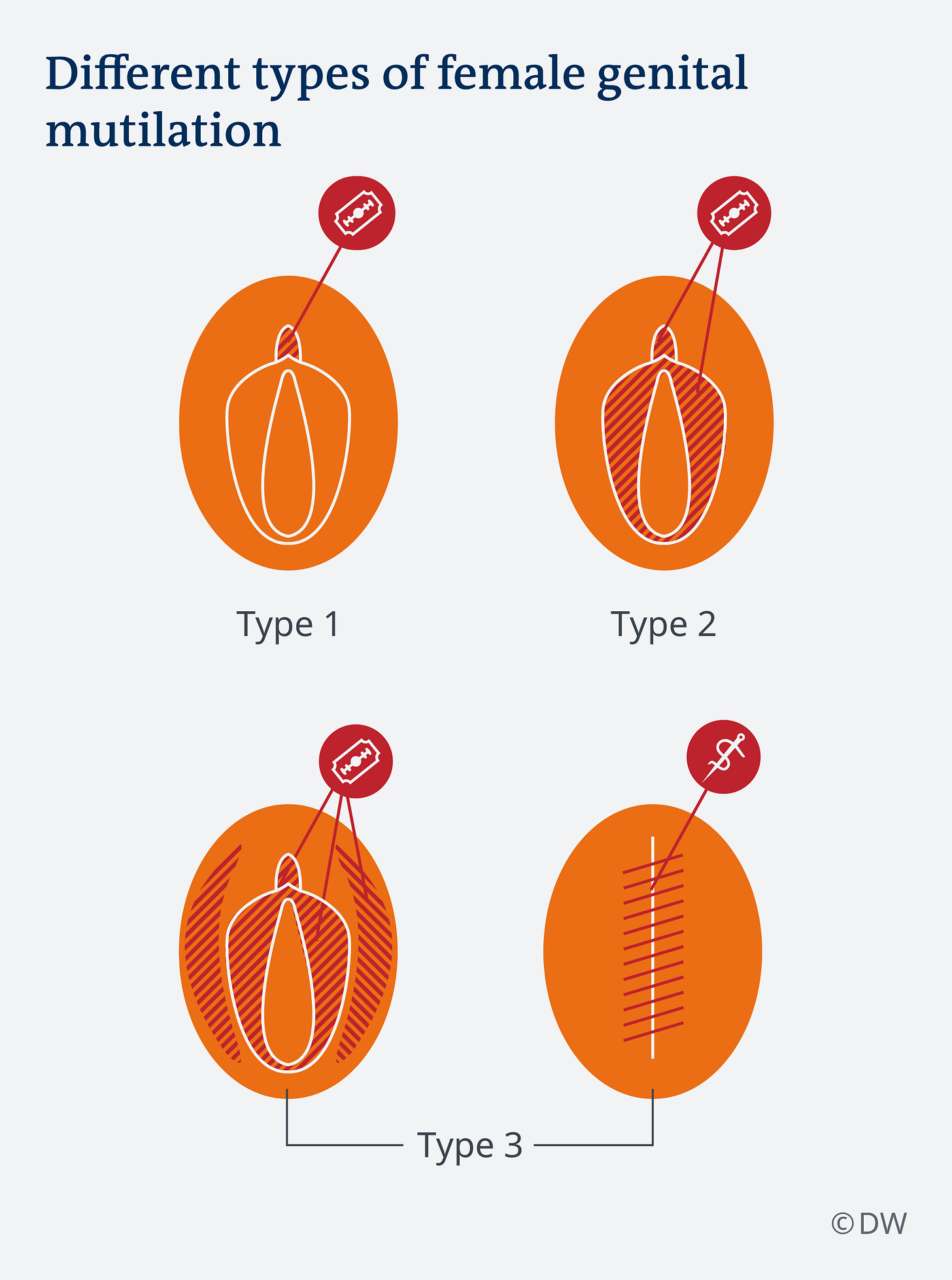Women Are More Than 'Headscarves and Hymens': The Middle East Continues to Have An Appalling Misogyny Problem
No "cultural relativism," thank you. Women are dying.
More and more these days, I find myself incapable of avoiding “sticky” topics. I took on religion a few weeks ago (and received a surprising amount of support, although I shed a few subscribers). Then I tackled guns and the NRA, knowing full well that my son, whom I love, is a supporter of both.
But I am really quaking before the enormity of speaking out against the horrific abuses women suffer in Arabic countries. In so doing, I run the risk of alienating yet more subscribers, yes, but also my more compassionate and lefty friends, some of whom will surely admonish me for being culturally tone deaf, for overreach, for failing to understand the intricacies of Arabic culture, for imposing my “Western morality” on ancient and inscrutable ways I couldn’t possibly hope to understand, for failing to clean up my side of the aisle before casting aspersions on the folkways of other countries.
Maybe that’s all true. Or maybe the inhumane treatment of women anywhere fills me with white-hot rage.
I’ll state my case and let you decide.
Before I dive in, however, I want to make it clear this article isn’t about hijabs. Wear what you want—I’m fine with that. I’m also not here to say that Arab culture is “bad.” Arab culture is a lot of amazing and beautiful things—nothing in life is ever unnuanced. But what I am concerned about is the way women are treated within Arab culture: sadistically, brutally, and without regard for personhood.
No one talks about it. They’re afraid to.
And while we look the other way, domestic abuse, gender-based violence, lack of even basic human rights, childhood abuse, and genital mutilation remain depressingly widespread in the Arab world. In Egypt alone, a country of more than 102.3 million people, 86% of underprivileged women aged 18 to 35 have been subjected to female genital mutilation.
Bear in mind that in Egypt, female genital mutilation was outlawed in 2008. This had almost no effect. Female Genital Mutilation, or FGM, is a medically unnecessary procedure that is often performed by someone with no medical training, using instruments such as knives, scalpels, scissors, glass or razor blades. Women and children are rarely given any anesthetic or post-surgical antiseptic treatment. They must be forcibly restrained. And the sole purpose of FGM is to control female sexuality, even though it often causes lifelong physical and emotional damage.
While FGM isn’t exclusive to the Middle East (it is also prevalent in Mali, Sierra Leone, Guinea, the Gambia, Somalia, and even parts of Asia), the practice primarily occurs in Egypt, Indonesia, Ethiopia, Oman, the United Arab Emirates and Yemen, as well as in Iraq, Iran, Jordan, the State of Palestine, and the United States. It can happen to a woman at any age: during childhood or adolescence, during pregnancy, or just before marriage, although the mean age is usually around nine and can be as early as six. FGM is so breathtakingly cruel, we in the west often have a hard time believing it is as widespread as it is.
Arab Muslim feminists will accuse me of applying reductive Western perceptions of Arabs as innately barbaric. I’m sorry to split hairs here, but I’m not “going after” Arabs. I’m going after specific practices irrespective of nationality. If there was a country anywhere in the world where men were forced to undergo excruciating, unmedicated castrations, the global outcry would be resounding. Not so with women. Some of these countries, like the United Arab Emirates are geopolitical “allies.”
But the sadism doesn’t stop there. During the Egyptian revolution of 2011, at least eighteen women taken into custody by the military police were not only subjected to torture, electrocution, and beatings, they were stripped naked, photographed, and then forced to undergo humiliating and invasive “virginity tests” in front of a roomful of soldiers. Every man involved was exonerated by a military court.
According to Egyptian penal code, if a woman has been beaten by her husband “with good intentions,” no punitive damages can be obtained. But what are “good intentions?” How can they be legally defined? Unless, of course, the law is left purposefully vague so that any man brought into court for beating his wife has the option of pleading them. Beating one’s wife is legally permissible, provided it is not “severe” (another vagued-up legal term) and doesn’t involve a woman’s face.
Women are allowed to drive in Saudi Arabia now. But as recently as 2011, a court in Jeddah sentenced a woman to ten lashes for driving a car. The police didn’t spot her, but a neighbor did, and he had no problem turning her into the authorities. In an effort to improve the country’s image abroad, then-King Abdullah commuted her sentence.
In one of the most appalling instances of misogyny ever, fifteen Saudi schoolgirls were stopped from exiting a blazing building because they were not wearing the appropriate Islamic abayas (black robes) and headscarves. The girls who attempted to flee were severely beaten, and the school gates locked to prevent them from leaving. All fifteen girls died. No one was put on trial for their deaths. Their parents were effectively silenced.
Libya’s former leader, Muammar al-Qaddafi imprisoned women and girls who survived sexual assault by dumping them into gruesome “social rehabilitation centers.” None was allowed to leave unless a man agreed to marry them or their families took them back.
On March 10, 2012, a sixteen-year-old girl named Amina Filali died in a small town in northern Morocco after ingesting rat poison. She’d been forced to marry her rapist in order to protect him from the law. Article 475 of the Moroccan penal code permits a rapist to go unpunished if he agrees to marry his victim. A woman is not allowed to marry without her father’s consent, however. Or divorce.
At least in theory, if not always practice, things are slowly changing in the Arab world. Not enough to save millions of women from genital mutilation, but female cops and judges do exist in Morocco now. Saudi crown prince and de facto ruler Mohammed bin Salman Al Saud has made attempts to burnish his image abroad by improving women’s rights, but much of that is little more than a power move intended to strip the religious faction of its authority so he can accrue it himself. Mohammed bin Salman is still the butcher who murdered U.S. journalist Adnan Khashoggi in cold blood. He also rounded up most of his family members to extort millions from them. A hero he will never be.
Why should we concern ourselves with the rights of Arab women? Because female religious subjugation often leads to female illiteracy, and illiterate women often raise fundamentalist sons. That’s true of any country. While “Arab” should never be synonymous with “misogyny,” it is disquieting to see that only the United Arab Emirates ranks in the top 100 in the World Economic Forums’ Global Gender Gap Report.
You can’t fix a problem without first acknowledging it. This is why I wanted to lay out the facts. The battle over women’s bodies is one we all fight, whether we’re in Somalia, Egypt, or Texas.
We won’t win it alone. But we will win it together.
I want to hear your thoughts, so weigh in here. Leave your comments below.
Copyright © 2022 Stacey Eskelin




Stacey, as usual you have written about a problem with concision, insight, and by any objective measure, fairness. You are unfortunately correct in anticipating that some progressives have an atavistic aversion to accurate critiques of barbaric Middle Eastern practices. This of a piece with those progressives who hate Israel, passionately promote Palestinian independence, but are silent, or worse ignorant, that ethnic Kurds are the largest group of stateless people in the world right now; where's the progressive outrage over Kurds? It's frankly depressing the way so many progressives become "nuanced" faced with the abuse of women in the Middle East and Africa, but condemn conservatives for their inability to see nuance about abortion or gun control. Is it any wonder why it's so hard to resolve social issues? If progressives struggle to be internally consistent then it's next to impossible for those who don't even respect intellectual engagement like progressives do. People suck, it's sadly just a matter of how much given people suck.
"Arab culture is a lot of amazing and beautiful things"- absolutely. I couldn't agree more. I adore the Arab world. I remember standing in the town center in Aleppo, Syria, one morning. I closed my eyes...and nothing I heard, smelled, or felt was familiar. It was one of the most amazing experiences I've been fortunate to have had in my life.
That said, it's impossible for me to ignore the non-Quranic reality that women are property in the Arab world. There's no religious justification for it, and those who use the Quran to justify reducing women to "less than" are bastardizing Islam. You don't have to like it, but it's the truth.
Women. Are. Not. Property.
Women are dying because men benefit from it- politically and economically. As long as that continues to be the case, it's unlikely that much will change. Since men make the rules in the Arab world, they have little incentive to do right by women.
This isn't about "cultural relativism," or "ethnocentrism;" it's about men treating women like chattel because they have economic and political incentives to do so. Sadly, the West continues to implicitly support this. Until Western countries make it clear that foreign aid is tied to equal rights and equal opportunities for women, the status quo will remain as is.
This isn't the West "dictating" to the Arab world. It's the West making it clear that if they want our aid and assistance, we will not continue to implicitly fund the subjugation of women.
Period. End of Story. Any questions?